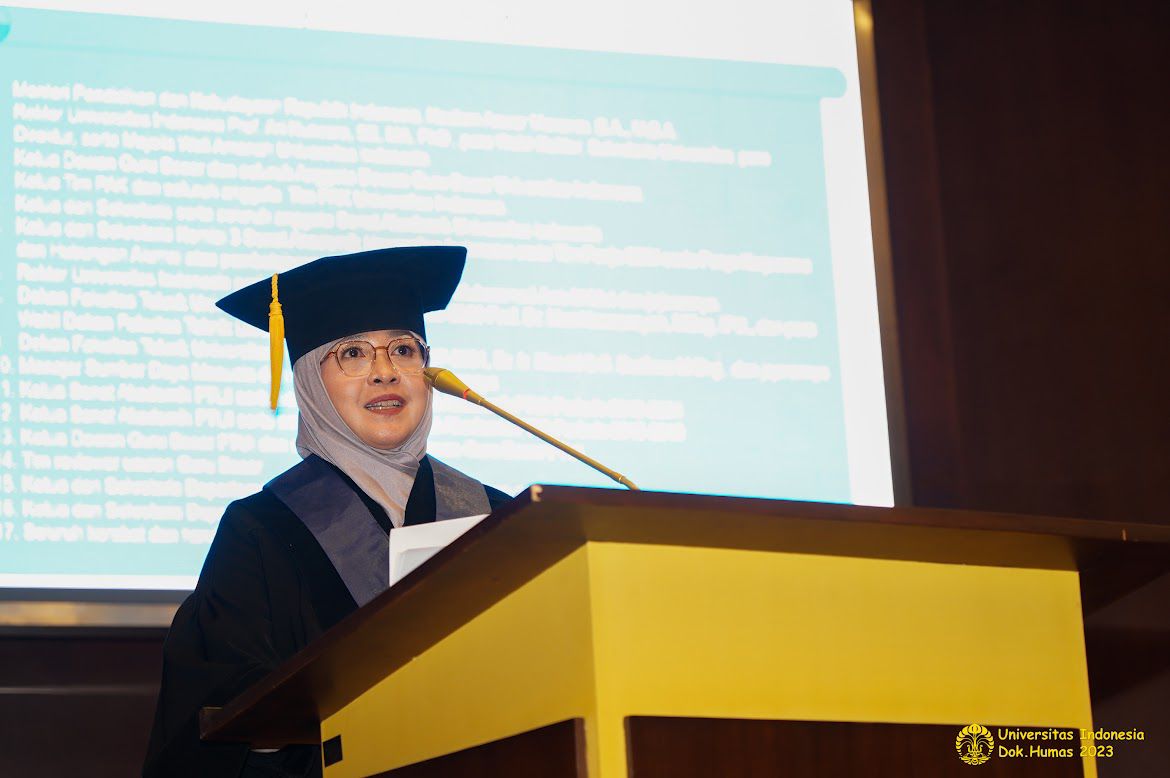Nanotechnology and carbon technology have the potential to bring about significant advances and improvements in various industries and play an important role in everyday life. Carbon-based nanomaterials have unique optical, electrical, chemical, mechanical and thermal properties with promising prospects in advanced applications, such as electronics, batteries, capacitors, wastewater treatment, membranes, heterogeneous catalysts, and medical science. The applications carried out depend on the properties or behaviour exhibited by several chemical elements known as allotropes, in this case, carbon.
“Among carbon allotropes, Carbon Nanotubes (CNT) can be one of the superior materials for nanotechnology which brings many advantages. CNT has the advantages of good mechanical properties, high modulus, good strength, and high flexibility. Thus, CNT is widely used in various composite material applications and the health sector,” said Prof. Dr. Ir. Praswasti Pembuilder Dyah Kencana Wulan, M.T., in his inauguration as Professor of the Faculty of Engineering, Universitas Indonesia (FTUI), on Wednesday (1/3).
Several factors affect the growth of CNTs, namely synthesis technique, carbon source, type of catalyst, and operating conditions such as reaction temperature and reaction time. Methane as a fossil-based carbon source aims to overcome the problem of carbon dioxide emissions by converting elemental carbon into CNT. Methane will decompose into simpler compounds (decomposition) with the help of metal-based catalysts such as Ni-Cu-Al. This catalyst is the best methane decomposition reaction catalyst in terms of CNT product quality, hydrogen selectivity and stability.
“Alternative hydrocarbon sources made from plastic waste such as Low-Density Polyethylene (LDPE) which we usually encounter in mineral water containers, have started to be looked at as a carbon source for CNT production since pyrolysis of plastic waste produces a series of compounds rich in hydrocarbons,” said Prof. Praswasti. He added, CNT production from plastic waste is more complicated than using pure hydrocarbons, so most research uses flame reactors.
The application of CNT-polymer in the field of composite materials is most preferred because it has good compatibility. The advantages of these composite products are lower production costs, abundant raw materials, flexibility in the manufacturing process and better properties such as high density, low moisture content and good dimensional stability. Meanwhile, the nanomedicine approach using CNT was developed to address the weaknesses of existing cancer treatments. CNTs have the potential to have high levels of drug targeting without reacting with other healthy cells. With a large surface area, CNTs have a high loading capacity for cancer drugs. CNTs can make drug delivery systems more effective and targeted, helping to reduce side effects and enhance therapeutic effects.
At the end of his speech, Prof. Praswasti said that nanotechnology offers innovative solutions to problems related to size, such as making materials stronger and more durable, as well as improvements in medicine and pharmaceuticals. Carbon technologies have great potential to help improve the quality and effectiveness of the healthcare and provide innovative solutions to global health problems.
The procession was also attended by Special Staff of the Presidential Staff Office, Ir. Arief Budhy Hardono; Deputy Mayor of Depok, Ir. Imam Budi Hartono, M.Sc.; Nuffic Nesso Indonesia Scholarship Team Coordinator, Ir. Indy Hardono, MBA; Chairman of the Universitas Indonesia Alumni Association (ILUNI UI) for the 2022–2025 period, Dr. Ir. Didit Hidayat A. Ratam, MBA .; Deputy Chancellor IV for Research and Student Affairs at Telkom University Bandung, Dr. Ir. Rina Pudjiastuti, M.T .; and the Head of the National Defense Education and Training Center of the Indonesian Ministry of Defense, Brigadier General TNI Ketut Gede Wetan Pastia, S.E.
Since 1991 until now, Prof. Praswasti is a Lecturer in Gas and Petrochemical Engineering at, the Department of Chemical Engineering, FTUI. He also serves as Head of Research Group Thermochemical Processes with a term of office from 2022 to 2026. He completed his undergraduate education at the Department of Gas and Petrochemical Engineering FTUI. Still, on the same campus, Prof. Praswasti continued his master’s degree in Gas Engineering in the Field of Metallurgical Engineering, at PPSBIT (1994) and his doctoral studies in the FTUI Chemical Engineering Study Program (2008).
In addition, several recent scientific works have been published, including the Effect of H 2 O 2 Concentration as an Electron Acceptor on Bioregeneration of Activated Carbon Contaminated with A Benzene-Toluene Mixture (2022), The effect of iron-carbon ratio and on carbon nanotubes synthesis using camphor and ferrocene as carbon sources in the gauze reactor (2021), Thermoeconomic assessment and optimization of wells to flashâbinary cycle using pure R601 and zeotropic mixtures in the Sibayak geothermal field (2021), Carbon nanotubes synthesis using Fe-Co-Mo/ MgO tri-metallic catalyst: Study the effect of reaction temperature, reaction time and catalyst weight (2020), and Formation of TiO2nanotubular layers on Ti-6Al-4V based dental implants for inhibiting biofilm growth (2020).
***
Bureau of Public Communications
Faculty of Engineering, Universitas Indonesia

